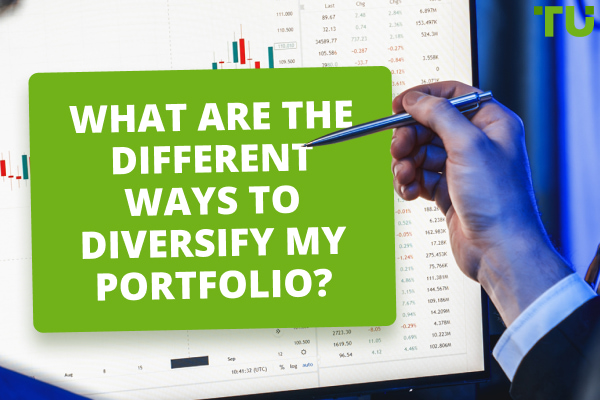How To Practice Trading Options Without Risking Money?

The best demo account to practice free options trading - eToro Demo
Top demo accounts to practice free options trading are:
-
1
eToro Demo - Best practice account for beginners in the US
-
2
eOption Paper Trader - Best options trading app
-
3
Cap Trader Demo - Best account with no time limit
-
4
Interactive Brokers - Best options virtual account for international traders
-
5
TradingView demo - Best technical analysis trading software
-
6
TD Ameritrade - Best advanced options trading app
Options trading, though one of the more complicated forms of trading out there, offers many benefits to investors. Options can provide traders with risk-reduction strategies and can be a low-cost way to short the market or go long. They also give traders the flexibility to potentially make a profit under any market conditions. However, it can take a lot of learning to get to the level of trading expertise needed for it.
Fortunately, many online brokerages allow traders to use demo accounts to trade options with virtual money, effectively allowing them to practice trading options without risking any capital. In this article, we look at what trading options means, how to practice options trading for free, and the best brokers for demo trading options. We’ll also explore the benefits of learning to trade options by yourself, and if trading options is difficult.
Demo trading accounts allow you to practice trading using virtual money, at no cost to yourself.
-
How do I get started with options trading?
Research different broker platforms, open a demo account, learn the basics of different strategies, and practice with virtual funds before trading real money.
-
How long can I use a demo account for?
Time limits vary by broker but most demo accounts allow unlimited practicing while some limit use to 30-60 days.
-
Is demo trading realistic?
Demo accounts aim to mimic real markets so traders can practice in a realistic paper environment, but they lack the pressure of real money on decision making.
-
How risky is options trading?
Options involve inherent risk because they expire worthless if targets aren't met. Managing risk through strategies like covered calls can help reduce risk levels.
What is options trading and what are its features?
Options trading explained
Options trading is a form of derivative trading, which means it’s a type of financial contract where the value is derived from an underlying asset or group of assets. In options trading, traders are given the right, but are not obliged, to buy or sell an underlying asset at a pre-set price (known as the strike price, or exercise price), within a specified time frame, before the expiry date. Though an option trades like a standard instrument, it’s basically a contract between two investors or traders that helps them speculate on the price of an asset, without either of them actually owning the asset.
An options trading scenario
Let’s imagine an example in the world of options trading using the story of two traders: Meta Bull and Meta Bear. Meta Bull is optimistic about the future value of Meta stock (NASDAQ: META) but doesn't want to purchase the shares directly. Enter Meta Bear, who holds the opposite view, that Meta is overvalued and will decrease in value.
They strike a deal where Meta Bull pays a premium to Meta Bear for the right to buy Meta stock at a predetermined price ($320) three months later. If, at that time, Meta stock is at $350, Meta Bull profits $30 by buying at the agreed $320. However, if the stock drops to $290, Meta Bull can opt not to trade at $320, and Meta Bear keeps the premium, regardless of the outcome.
Meta Bull, in this case, is the option buyer, having acquired a “call option”, which grants the right to purchase shares at a set price. The seller, Meta Bear, is obliged to fulfill the agreement if Meta Bull decides to buy. Conversely, a bearish trader expecting a decline would go for a “put option”, giving them the right to sell at the predetermined price, while pocketing the premium.
Options Trading Features
Traders looking to engage in options trading would look at an “options board”, also known as an options chain, which is a comprehensive tool showing option prices for a particular asset. Displayed in table format, the options board presents available options contracts, including call and put options, with various strike prices and expiration dates, which is the date and time that the option will close. The board usually also shows bid and ask prices, expected volatility, and any information needed in order to hash out an effective trading strategy.
As you can see, options trading is incredibly complex, and traders engaging in it do so at their own risk. Luckily, demo accounts exist, so that you can get familiar with how it works, practice different strategies, and understand which ones work for your trading style, without having to risk your own capital.
Best brokers for free options trading
Options and stock trading demo accounts provide traders with a valuable tool that simulates a real market environment and market conditions, allowing them to practice their trading strategies without ever having to spend any actual money. Many brokerage firms give individuals access to virtual platforms that let them engage in simulated options trading, so they can experiment with different trading techniques and approaches, but without the risk incurred by using real money.
When you sign up for a demo account, you are provided with a sum of “virtual money”, which you can use to place trades. The prices of virtual assets you invest in will mimic those of real-world assets, so you can get a real feel for which options strategies work for you, how different market scenarios impact your trades, and familiarize yourself with decision making and risk management. Demo options accounts are a (literally) priceless tool for educating yourself and refining your skills in options trading.
Not all demo account platforms are the same, however. Their features differ, as do the lengths of their trial periods, as well as the amounts of virtual funds you receive.
| Demo Platform | Time Limit | Virtual Funds | Advantages | Disadvantages |
|---|---|---|---|---|
None |
$100,000 |
|||
60 days |
$100,000 |
|||
None |
Not specified |
|||
30 days |
Not specified |
|||
30 days |
$100,000 |
|||
None |
$100,000 |
Can you learn option trading yourself?
If you want to learn how to trade options, you can opt for trying to teach yourself using the vast online library of education resources, watching endless playlists of videos and reading tons of articles. Or you can take advantage of the many available platforms with their resources curated by experts, featuring carefully selected material relevant to your education on options trading. Each option has its advantages and disadvantages.
👍 Pros of learning option trading yourself
• Cost Efficient. Self-learning is often more cost-effective than formal education. There are numerous free and paid resources available online, allowing you to gain knowledge without significant financial investment
• Flexible. Learning at your own pace provides flexibility. You can adapt your learning schedule to fit your lifestyle and balance it with your other commitments
• Hands-On Experience. Learning by doing allows you to gain practical, hands-on experience. It's an effective way to understand the intricacies of option trading through real-world application
👎 Cons of learning option trading yourself
• Risk of Misinformation. The internet is flooded with information, and not all of it is accurate or up-to-date. Relying solely on online resources increases the risk of learning the wrong things from misinformation
• Limited Support. As a self-learner, you might lack a support system. Without access to mentors or a community, you could face challenges in clarifying doubts or seeking guidance on complex topics
• Time Consuming. Without the relevant information selected for you, you could end up wasting time learning about things irrelevant to you
Is options trading difficult?
With the financial market being so competitive, trading options can often be seen as complicated, particularly for beginner traders. However, with enough studying and learning, and thorough practice, options trading can become more manageable.
Options trading is seen as difficult for several reasons. For a start, typical strategies are more complex than usual, often requiring a combination of call options and put options to effectively manage risk. Options are also time sensitive, adding a layer of complexity that wouldn’t be found in regular stock trading. At a more advanced level, options trading incorporates mathematical models (such as the Black-Scholes model) to determine the fair price of an option, which can be intimidating for those not comfortable with quantitative concepts.
Beginners can follow some basic tips to simplify options trading and better prepare themselves:
-
Study. Invest time in learning the basics. Many online resources, courses, and books explain options in beginner-friendly terms
-
Start Small. Begin with simple strategies and gradually progress. Avoid complex trades when first starting off
-
Manage Risk. Understand and implement risk management strategies to protect your capital, whether virtual or real
-
Use a Demo Account. Practice, practice, practice! Use a demo options trading account and put your strategies to the test. Experiment as much as you can, and study while you do so
At the end of the day, you have nothing to lose by creating a demo account and practicing trading options with it. The road to successful options trading is not an easy one, but with the right attitude, self-discipline, and commitment, you could become an options maestro.
Best Forex brokers


Summary
Demo trading accounts are invaluable for allowing traders to gain experience without risking capital. The article reviewed some of the top brokers for free demo options trading such as eToro, eOption Paper Trader, CapTrader, Interactive Brokers, TradingView, and TD Ameritrade. These platforms offer virtual money, simulated trading environments, and educational resources to help traders learn.
While self-directed learning has advantages like flexibility and hands-on experience, partnering with a brokerage can provide structure, mentorship, and a community. Ultimately, perseverance and risk management are key - use free demo accounts generously, start simple, study educational materials, join a trading community, and progress strategically. With commitment to continuous improvement, options trading can be mastered over time by even novice retail traders.
Glossary for novice traders
-
1
Broker
A broker is a legal entity or individual that performs as an intermediary when making trades in the financial markets. Private investors cannot trade without a broker, since only brokers can execute trades on the exchanges.
-
2
Trading
Trading involves the act of buying and selling financial assets like stocks, currencies, or commodities with the intention of profiting from market price fluctuations. Traders employ various strategies, analysis techniques, and risk management practices to make informed decisions and optimize their chances of success in the financial markets.
-
3
Options trading
Options trading is a financial derivative strategy that involves the buying and selling of options contracts, which give traders the right (but not the obligation) to buy or sell an underlying asset at a specified price, known as the strike price, before or on a predetermined expiration date. There are two main types of options: call options, which allow the holder to buy the underlying asset, and put options, which allow the holder to sell the underlying asset.
-
4
Risk Management
Risk management is a risk management model that involves controlling potential losses while maximizing profits. The main risk management tools are stop loss, take profit, calculation of position volume taking into account leverage and pip value.
-
5
Volatility
Volatility refers to the degree of variation or fluctuation in the price or value of a financial asset, such as stocks, bonds, or cryptocurrencies, over a period of time. Higher volatility indicates that an asset's price is experiencing more significant and rapid price swings, while lower volatility suggests relatively stable and gradual price movements.
Team that worked on the article
Jason Law is a freelance writer and journalist and a Traders Union website contributor. While his main areas of expertise are currently finance and investing, he’s also a generalist writer covering news, current events, and travel.
Jason’s experience includes being an editor for South24 News and writing for the Vietnam Times newspaper. He is also an avid investor and an active stock and cryptocurrency trader with several years of experience.
Dr. BJ Johnson is a PhD in English Language and an editor with over 15 years of experience. He earned his degree in English Language in the U.S and the UK. In 2020, Dr. Johnson joined the Traders Union team. Since then, he has created over 100 exclusive articles and edited over 300 articles of other authors.
Mirjan Hipolito is a journalist and news editor at Traders Union. She is an expert crypto writer with five years of experience in the financial markets. Her specialties are daily market news, price predictions, and Initial Coin Offerings (ICO).









